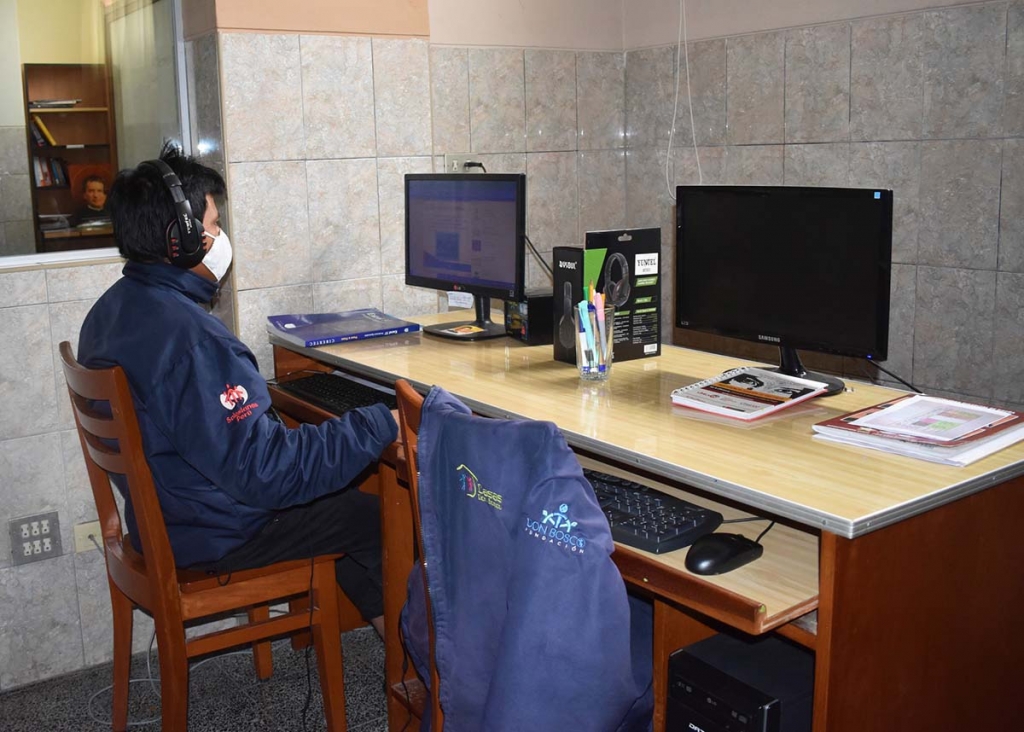PERU: Youth at Don Bosco Home in Breña have access to new computers to help improve their academic performance

(MissionNewswire) Youth taking educational programs at Don Bosco Home in Breña, Peru, have access to new computers thanks to a donation. With the coronavirus pandemic, many students are having to learn remotely. Even students attending school in-person need after-school access to technology to study and do their homework. The donation is ensuring that youth have the ability to continue their studies and improve their academic performance.
Access to education for children and older youth in Peru is limited for youth living in remote regions and in poverty-prone areas of bigger cities like Lima. Many of these children walk up to four hours a day during their commute to and from school and are exposed to dangers such as sexual abuse, abduction for the purpose of human trafficking and induction into child prostitution.
Don Bosco Home is part of the larger Red de Casas Don Bosco initiative that serves hundreds of children and older youth, offering them a home, food, education, and spiritual and psychological support. Red de Casas Don Bosco includes 11 boarding homes in the cities of Ayacucho, Arequipa, Cusco, Huancayo and Lima (Breña and Rímac), as well as the Cusco Alto Andinas missions including Ampares, Calca and Quebrada Honda. At the Don Bosco Home, minors receive hospitality but also the opportunity to grow up in a familiar and cheerful environment where they can attend workshops, after-school courses and sports-related activities.
“Given the struggles in many communities across Peru, many families turn to Salesian programs for safety, education and social programs,” says Father Gus Baek, director of Salesian Missions, the U.S. development arm of the Salesians of Don Bosco. “Youth need opportunities for education as well as access to safe places to play and connect with adults and their peers. They need to have all of their basic needs met as well as the support required to allow them to focus on their studies and learn new skills.”
Peru faces high levels of income inequality and has more than 21 percent of its population living in poverty, according to the World Bank. Poverty levels are significantly higher in rural areas but urban areas struggle most with inequality, most notably metropolitan Lima. Poverty in the country is made worse by a shortage of productive farmland and a lack of job skills among women entering the workforce, adequate housing, nutrition and education. Peru has also been plagued by hunger and disaster. According to the World Bank, close to 25 percent of children in the country are chronically malnourished.
Salesian missionaries working in Peru have provided life-saving support and education to poor youth and their families for many years. They have also helped with rebuilding efforts after the 8.0 earthquake in August 2007 which killed more than 500 people in the central coastal cities of Chincha, Pisco and Ica and injured hundreds more.
###
Sources:
ANS Photo (usage permissions and guidelines must be requested from ANS)
ANS – Peru – New computers for young people of Don Bosco House in Breña
Salesian Missions – Peru
World Bank – Peru





